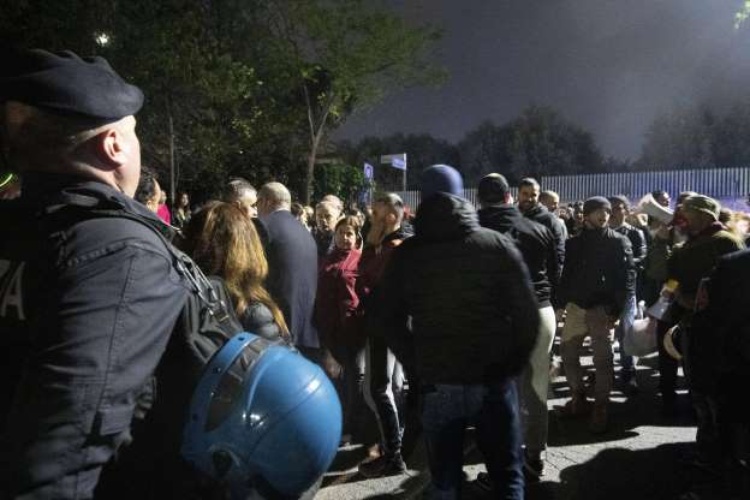The group, which includes more than 30 children and three pregnant women, will be moved into other shelters around the capital within a week, the council announced on Tuesday evening.
The decision to relocate the group came after hours of protests in the suburb of Torre Maura, where the Roma (gypsy) families had been moved that morning from a nearby housing centre that is due to close.
Demonstrators blocked the centre’s entrance with rubbish and set fire bins and cars, forcing riot police to intervene.
Local media reported that the mob also hijacked a food delivery destined for residents of the shelter, stamping on sandwiches and destroying the food.
“They should starve to death,” Italian daily Repubblica cited people shouting.
Some protesters slammed Rome’s decision to house the Roma group in a poor area of the city where many locals suffer from a lack of basic services like supermarkets and public transport.
Prosecutors are now investigating the incident.
Rome Mayor Virginia Raggi ordered the investigation and said there was a “very heavy climate of hatred” at the protest, which was reportedly organised by two far-right groups.
“I intervened to stop the situation degenerating,” Raggi said.
“I intervened to protect the very many honest citizens of that [area] and the 33 children [among the Roma].”
Deputy Prime Minister Matteo Salvini condemned the violent protests but reiterated his plans to clear all Roma camps in Italy.
“The goal that I have been working on for months is to have no Roma camps by the end of my term as minister,” he told Italian news agency ANSA.
Salvini’s far-right League party has accused Roma people of stealing and refusing to integrate into society.
The majority of Italy’s Roma community, of which around half are Italian citizens, live in poverty.
There are at least 130,000 Roma people in Italy, many living in unlicensed camps on the fringes of cities.
Many Roma complain that deep-rooted discrimination makes it difficult for them to find permanent housing and employment.












